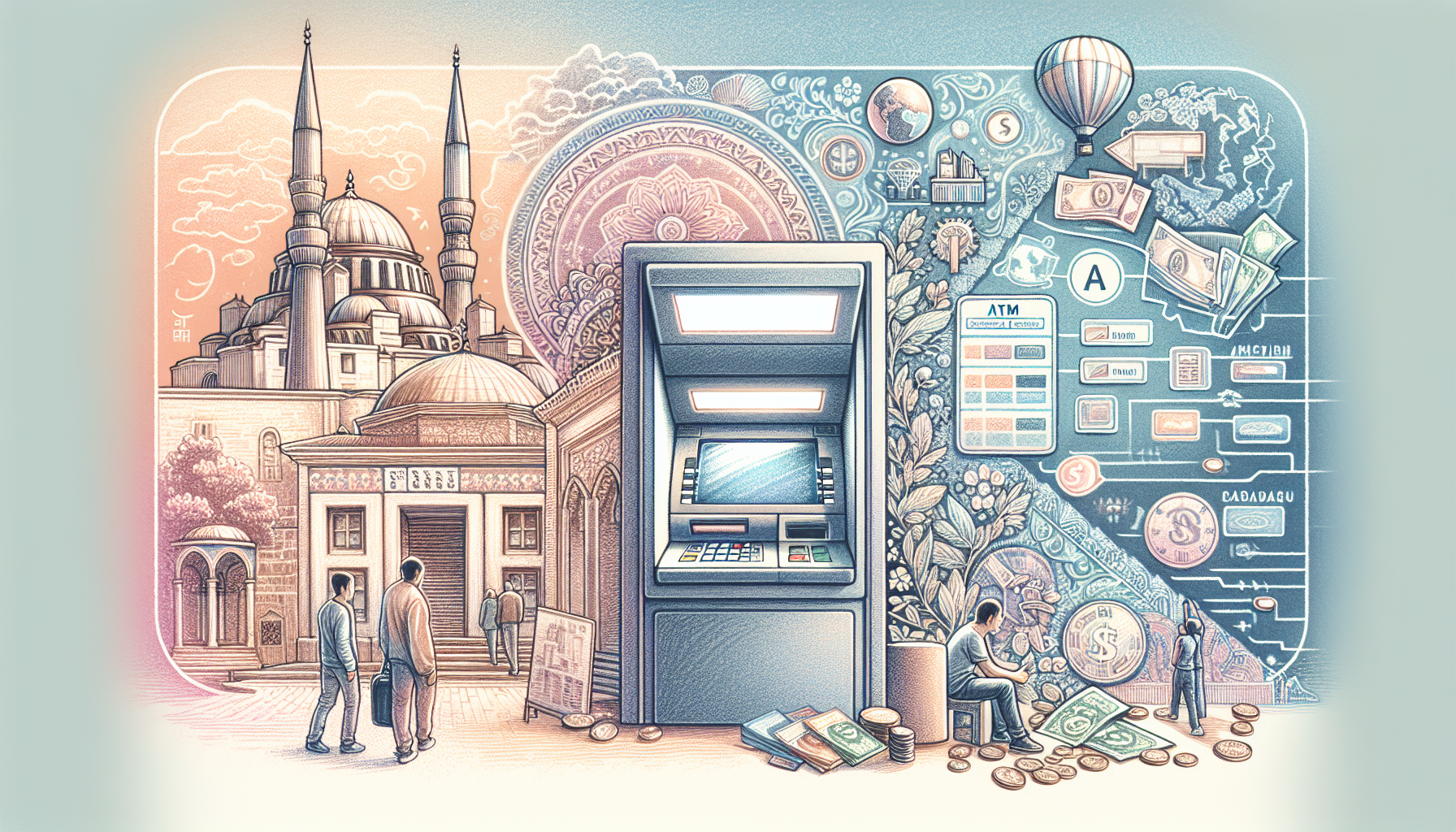Using ATMs in Turkey: What You Need to Know

Managing finances as an expat in Turkey comes with challenges, especially when it comes to accessing cash. ATMs are widely available, but understanding their processes can save you time, money, and frustration. Whether you’re withdrawing funds, checking balances, or making transactions, knowing how Turkish ATMs work will help you avoid unnecessary fees and security risks. This guide covers everything you need to know to use ATMs in Turkey efficiently.
Finding ATMs and Understanding Locations
ATMs in Turkey are easily found in urban centers, shopping malls, airports, and tourist areas. However, not all machines offer the same functionality. Some only work with local banks, while others accept international cards.
- Bank Branch ATMs: More secure and reliable for international cards.
- Independent ATMs: May charge higher fees and offer different exchange rates.
- 24-Hour Machines: Common in busy areas but ensure you use well-lit, secure locations.
If you’re in rural areas, ATMs can be harder to find, so plan accordingly, especially during weekends or holidays when some machines might run out of cash.
Using Your Card: What to Expect
Most ATMs in Turkey support international debit and credit cards, provided they have Visa, Mastercard, or Maestro logos. However, not every ATM processes foreign cards the same way.
- Supported Networks: Check if your bank has partnerships with Turkish banks to minimize fees.
- Chip and PIN Requirement: Magnetic strip cards may not work; always ensure your card has a chip.
- Multiple Language Options: Most ATMs offer English, but double-check before proceeding.
- Cash Availability: Some ATMs only dispense Turkish Lira (TRY), so confirm if you need EUR or USD.
Before traveling, notify your bank about your stay in Turkey to prevent transaction blocks due to unusual activity.
ATM Withdrawal Fees and Exchange Rates
Every ATM transaction involves potential charges. Understanding these fees can help you make informed financial decisions.
- Bank Fees: Your bank may charge international withdrawal fees. Some offer free global ATM usage if you have premium accounts.
- ATM Operator Fees: Some ATMs charge additional fees, which they disclose before finalizing your transaction.
- Currency Conversion Costs: Avoid ATMs offering Dynamic Currency Conversion (DCC), as your bank’s exchange rate is usually better.
- Daily Withdrawal Limits: Limits vary by bank; most range between 3,000-5,000 TRY per transaction.
Whenever possible, withdraw larger amounts less frequently to minimize transaction fees. Always select the option to be charged in Turkish Lira rather than your home currency to avoid unfavorable conversion rates.
Security Tips for ATM Use
While Turkey is generally safe, ATM fraud or card skimming can occur in high-tourist areas. Taking a few precautions will help ensure a secure banking experience.
- Choose Secure Locations: Use ATMs inside banks, malls, or hotels rather than street-side machines.
- Inspect the Machine: Avoid ATMs with loose card slots or unusual attachments.
- Cover Your PIN: Shield the keypad when entering your PIN to prevent hidden cameras from capturing it.
- Monitor Transactions: Regularly check your bank statement for any unauthorized activity.
- Avoid Late-Night Withdrawals: If possible, use ATMs during the day in well-populated areas.
If your card is lost or swallowed by an ATM, contact your bank immediately. Turkish bank helplines usually offer English-language support for emergencies.
Alternatives to ATM Withdrawals
Sometimes, withdrawing cash from ATMs isn’t the best option. There are alternative ways to access money in Turkey without relying solely on machines.
- Bank Transfers: If staying long-term, opening a local bank account allows you to receive transfers with lower fees.
- Currency Exchange Offices: Competitive exchange rates are available in tourist districts and financial centers.
- Cash Pickup Services: Companies like Western Union allow transfers directly to a Turkish location.
- Card Payments: Many businesses accept foreign debit/credit cards, reducing the need for frequent cash withdrawals.
While cash is still common in markets and smaller shops, digital payments are widely accepted. Use contactless or mobile payments whenever possible to reduce the need for cash.
By understanding ATM usage in Turkey, you can manage your finances more efficiently while avoiding unnecessary fees and security risks. With the right strategies, accessing cash as an expat becomes a hassle-free experience.
